Solving the Mystery: Why is My New AC So Loud Inside My House?
John Parker here! Ever found yourself questioning, “Why is my new AC so loud inside my house?” You’re not alone. That unsettling ruckus can be disturbing, transforming a peaceful living space into something less pleasant.
From the roar of a newly-installed American Standard to the chatter of other high-efficiency AC systems, it’s like an orchestra you didn’t ask for. These sounds could emanate from a variety of factors including incorrect installation, to ductwork complications. It’s high time we put that ceaseless noise to rest!
So, stick around as I break down the causes behind your AC’s newfound voice and provide actionable solutions. With these insights at your disposal, silence is not only golden, it’s attainable!
Understanding the Noise from Your New AC Unit
If you’re wondering, “why is my new AC so loud inside my house?”, you are not alone. The operational dynamics of newer high-efficiency AC units, particularly those similar to the American Standard 14 Seer outdoor unit with a variable-speed air handler, can inherently generate more noise. While this may seem counterintuitive for a modern unit, understanding the specific factors at play can offer some clarity and guide you toward solutions.
In a well-insulated, single-level, 2300 square foot ranch home, the AC unit often includes all-new ductwork installed in the ceiling. This design, while efficient, can present unique acoustic challenges.
Ductwork Configuration and Size
The ductwork for such homes typically uses 6″ or 8″ round deflectors. However, one critical element that might not be adequately sized is the return air path. In this case, a single large return (20″ x 24″) situated in the hallway ceiling could be insufficient. This can cause the system to work harder, generating more noise.
Impact of Variable-Speed Air Handlers
Variable-speed air handlers are designed to optimize energy efficiency by “ramping up” to maintain consistent airflow. Unfortunately, if the duct system is restrictive, these handlers have to work even harder, thereby increasing noise levels. Such noise can be significant enough to disrupt everyday activities like watching TV or sleeping.
Potential Noise Interference
- Restrictive Duct System: Overly restrictive ducts can elevate air noise and static pressure, making the air handler operate noisier.
- High Static Pressure: Excessive static pressure forces the air handler to increase speed, which can further elevate operational noise.
Addressing these factors is crucial to easing the question of “why is my new AC so loud inside my house?” One common strategy involves ensuring that the duct and return path sizing is optimal, thereby reducing the workload on the variable-speed air handler. Regular maintenance and professional assessments can also pinpoint and resolve issues causing excessive noise, ensuring a more peaceful indoor environment.
Common Causes of Loud AC Noise
When it comes to finding the answer to “why is my new AC so loud inside my house,” several factors could be at play. From installation issues to component malfunctions, it’s essential to get to the root of the problem to enjoy a quieter home environment.
Improper Installation
Many homeowners wonder, “why is my new AC so loud inside my house?” One common cause is improper installation. When AC units aren’t installed correctly, they can have loose components that vibrate and create noise. Ensuring the unit is securely mounted and all connections are tight is crucial. For more insights on the importance of proper HVAC installation, check out this article on the importance of proper HVAC installation. If the mounting isn’t solid or connections are loose, vibrations can travel through the entire system, leading to higher noise levels inside your house.
Incorrect Sizing of the AC Unit
The question, “why is my new AC so loud inside my house?” may also stem from incorrect sizing of the AC unit. An oversized AC system will cycle on and off more frequently, causing disruptive noise. On the flip side, an undersized unit struggles to cool the space, running continuously and escalating noise levels. Getting the unit properly sized by a qualified technician can ensure efficient operation and reduce noise.
Faulty Compressor or Other Components
Another potential reason for a loud AC is faulty components like the compressor, blower fan, or motor. These defective parts can produce continuous loud noises, prompting homeowners to ask, “why is my new AC so loud inside my house?” Issues with fan blades or other internal parts can worsen noise as they interact with other components. Regular inspections and replacing worn-out parts timely can prevent these issues.
Debris and Dirt Buildup
Outdoor debris often contributes to AC noise, causing homeowners to question, “why is my new AC so loud inside my house?” Dirt, branches, or leaves can get trapped inside the condenser unit, leading to rattling noises. Regular cleaning and maintenance of the outdoor unit can prevent such problems. Keeping the condenser free from debris not only reduces noise but also enhances the AC system’s efficiency.
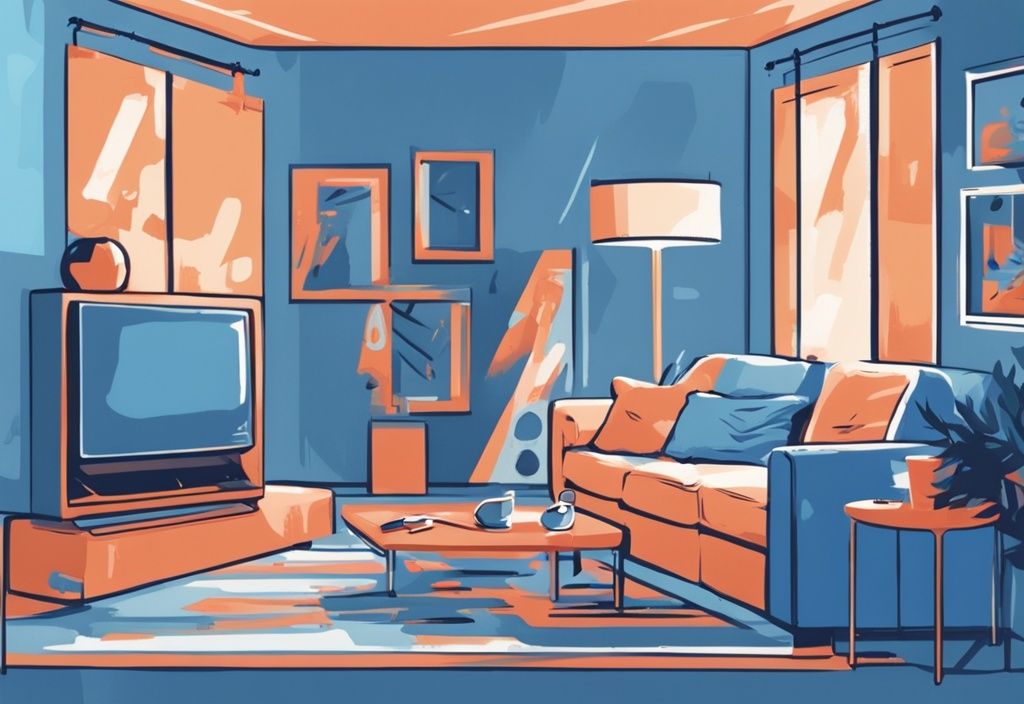
Issues with Air Filters
Dirty or clogged air filters are another frequent answer to the question, “why is my new AC so loud inside my house?” Restricted airflow due to clogged filters forces the AC to work harder, resulting in higher noise levels. Regularly cleaning or replacing air filters according to manufacturer recommendations is crucial for maintaining a quieter operation. Clean filters ensure proper airflow and help the unit run more smoothly and efficiently, minimizing operational noise.
Impact of Ductwork on AC Noise
Understanding the impact of ductwork on the noise of your AC system is crucial. The right design can keep things whisper-quiet, while any flaws can turn your home into a noisy wind tunnel. Here are some key points to consider:
Restrictive Duct System
Are you wondering, “why is my new AC so loud inside my house?” An over-restrictive duct system might be the culprit. When the ductwork is too restrictive, it causes excessive air noise and elevates static pressure. This forces variable-speed air handlers to increase their speed, thereby amplifying noise levels.
Inadequate or Poorly Designed Ductwork
Inadequate or poorly designed ductwork can also answer the question, “why is my new AC so loud inside my house?” If the duct sizes are undersized for your system or there are insufficient return air paths, the issue of high noise levels becomes pronounced. Ensuring that ductwork is properly sized can be essential for maintaining quiet operation and minimizing static pressure, crucial for optimal AC performance.
Static Pressure Issues
Static pressure issues can greatly impact the noise level, making you question “why is my new AC so loud inside my house?” High static pressure not only increases motor amp draw but also lowers overall airflow, leading to reduced cooling efficiency. Keeping static pressure within the manufacturer’s specified range is vital for silent and efficient operation. Proper static pressure readings can verify that your AC system is working as intended, helping eliminate unnecessary noise.
Variable-Speed Air Handler Concerns
The Role of Airflow and Speed Adjustments
When pondering, “Why is my new AC so loud inside my house?” it’s essential to understand the dynamics of variable-speed air handlers. These sophisticated components adjust their speed to keep airflow consistent throughout your home. However, if your ductwork is restrictive, the air handler has to ramp up its speed to push enough air through narrow pathways. This increased speed can result in higher noise levels, making your indoor environment much noisier.
Restriction in ducts can come from several factors, including undersized ducts, improperly sealed connections, or even blockages. When these issues force the air handler to work harder, it not only creates more noise but also increases wear and tear on the system. For more detailed guidance on similar issues, such as how to perform a Buick Enclave AC reset, check our comprehensive guides. Ensuring that your home’s ductwork is adequately sized and free from obstructions is crucial for maintaining a quieter indoor environment.
Static Pressure and Air Handler Speed
Static pressure is a crucial factor affecting your AC’s performance and should be within the manufacturer’s specified range—typically around 0.5″ water column. But why is my new AC so loud inside my house? Excessive static pressure is often the culprit. When static pressure exceeds the recommended levels, the air handler’s motor works harder, generating more noise and leading to inefficiency and potential system wear.
High static pressure can be caused by restrictive ductwork, dirty filters, or even incorrect installation. To ensure your AC system functions quietly and efficiently, regularly monitor static pressure and address any contributing factors. If you notice issues such as a mini split leaking water, it could indicate a problem that needs immediate attention. Doing so helps maintain optimal performance, reduces noise, and extends the lifespan of your air conditioning system.
Mitigating AC Unit Noise
It can be quite frustrating when your brand new AC unit makes more noise than you bargained for. Let’s dive into some practical steps to help you get to the bottom of why your new AC is so loud inside your house and how to quiet it down.
Check for Loose Components
Over the years, I’ve seen a lot of noisy units caused by loose parts. It’s a common issue, but thankfully, one that’s easy to fix.
- Inspect All Parts Frequently: Make a habit of checking the AC unit regularly. Look for any loose or damaged components, such as fan blades or motor mounts. Loose parts can vibrate and create quite a racket.
- Tighten Screws and Bolts: Ensure all screws, bolts, and connections are snug. Just by tightening things up, you can often reduce a lot of the vibration-induced noise and enjoy a quieter home.
Conduct Regular Maintenance
One question I hear a lot is: “Why is my new AC so loud inside my house?” Often, the answer lies in routine maintenance.
- Clean the Outdoor Condenser: Keep the condenser unit free from debris like dirt, branches, and leaves. A clean unit runs smoother and quieter.
- Replace Air Filters: Follow the manufacturer’s recommendations for air filter replacements. Clogged filters restrict airflow, causing the unit to work harder—and louder.
- Lubricate Moving Parts: Regular lubrication of parts like fan motors and blower assemblies keeps them running smoothly and minimizes noise. Refer to the manufacturer’s guidance for specifics.
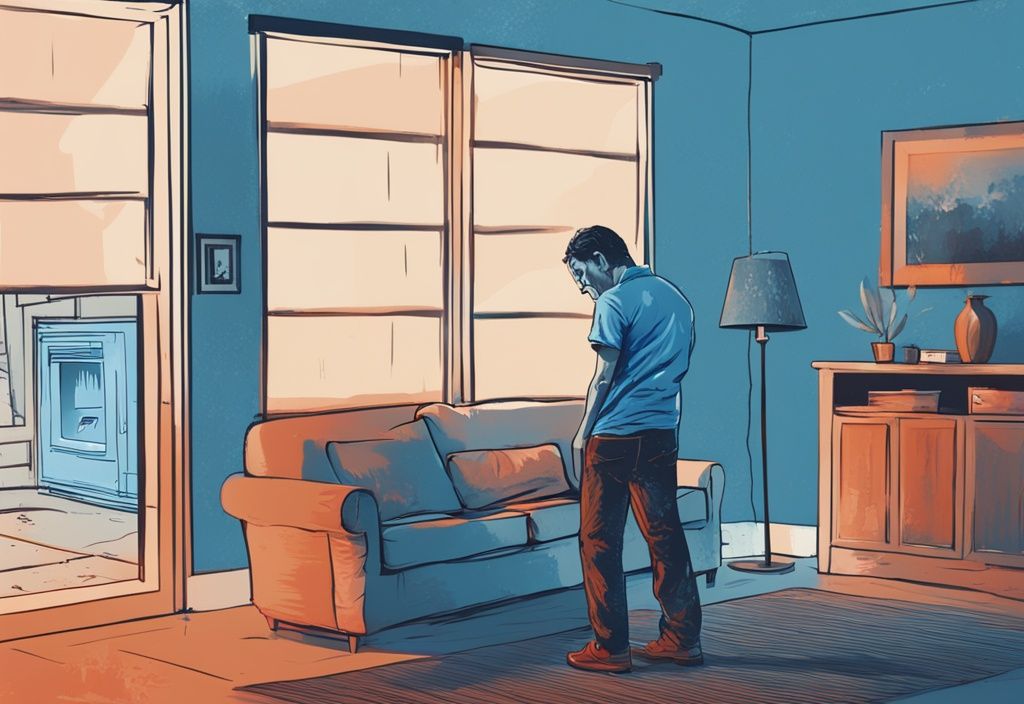
Resolving Ductwork Issues
Ductwork problems can also be a major contributor to a noisy AC system. Addressing these can make a world of difference.
- Inspect for Leaks and Blockages: Check the duct system thoroughly for any leaks, blockages, or design flaws that could be causing noise.
- Evaluate Duct Sizing and Layout: Sometimes, the ducts themselves are the culprit. Inadequate sizing or a single return air path can restrict airflow, forcing the air handler to work harder and make more noise.
- Modify Duct Sizes if Needed: Adjusting or expanding duct sizes can help manage airflow better, reducing the noise associated with the air handler’s effort.
- Address Static Pressure Issues: High static pressure within the duct system can significantly increase noise levels. Rebalancing the ductwork can alleviate this problem.
Conclusion
These strategies can effectively address the issue of “why is my new AC so loud inside my house.” By regularly inspecting your unit, keeping up with maintenance, and ensuring your ductwork is in good shape, you’ll be on your way to a quieter, more comfortable home.
Professional Solutions for a Quiet AC
To tackle the noise issue from your new AC inside the house, it’s important to cover a few professional solutions comprehensively. Let’s dig into proper installation, static pressure management, and hiring the right contractors.
Proper Installation and Sizing
- Correct Sizing to Avoid Noise: Ensuring your AC unit is the right size for your home is crucial to keeping things quiet. If your unit is too large, it will cycle on and off too often. Too small? It’ll run continuously. Either way, you’re looking at elevated noise levels.
- Installation Techniques: Good installation makes a world of difference. Secure mounting brackets, fans, and all the other bits and bobs to keep vibrations and noise down. Addressing these installation aspects can help answer the question, “why is my new AC so loud inside my house?”.
Importance of Static Pressure Readings
- Maintaining Optimal Static Pressure: It’s key to regularly check the static pressure in your system. Keep it within the manufacturer’s recommended range (typically around 0.5″ water column). High static pressure can stress the motor, cranking up the noise.
- Enhancing Efficiency and Longevity: The right static pressure ensures your AC runs efficiently and quietly. Proper maintenance of static pressure cuts down on noise and wear and tear, keeping your system reliable for the long haul.
Hiring Qualified Contractors
- Finding the Right Expertise: When you call in a qualified contractor, you’re getting a pro who can pinpoint and fix your noise issues. Whether it’s an installation hiccup or a sizing misstep, having an expert at hand gives you peace of mind.
- Accurate Assessment and Solutions: A seasoned contractor offers spot-on assessments and custom solutions. This expertise directly addresses the question, “why is my new AC so loud inside my house?”. By following best practices, they can help ensure your AC runs quieter and more efficiently.
Conclusion
Having a new AC that’s noisy inside your house can be frustrating and downright annoying. Understanding the possible reasons behind this noise is the first step to resolving it.
- Improper Installation: Sometimes, the installation might not be up to the mark with loose screws, bolts, or other fixtures causing vibrations and noise.
- Incorrect Unit Sizing: If your unit isn’t the right size for your home, it can work harder than necessary, leading to more noise.
- Ductwork Issues: The ductwork might be too restrictive or improperly sized, causing high static pressure and a noisier operation.
Once you’ve pinpointed the potential cause, there are several steps you can take to mitigate the noise:
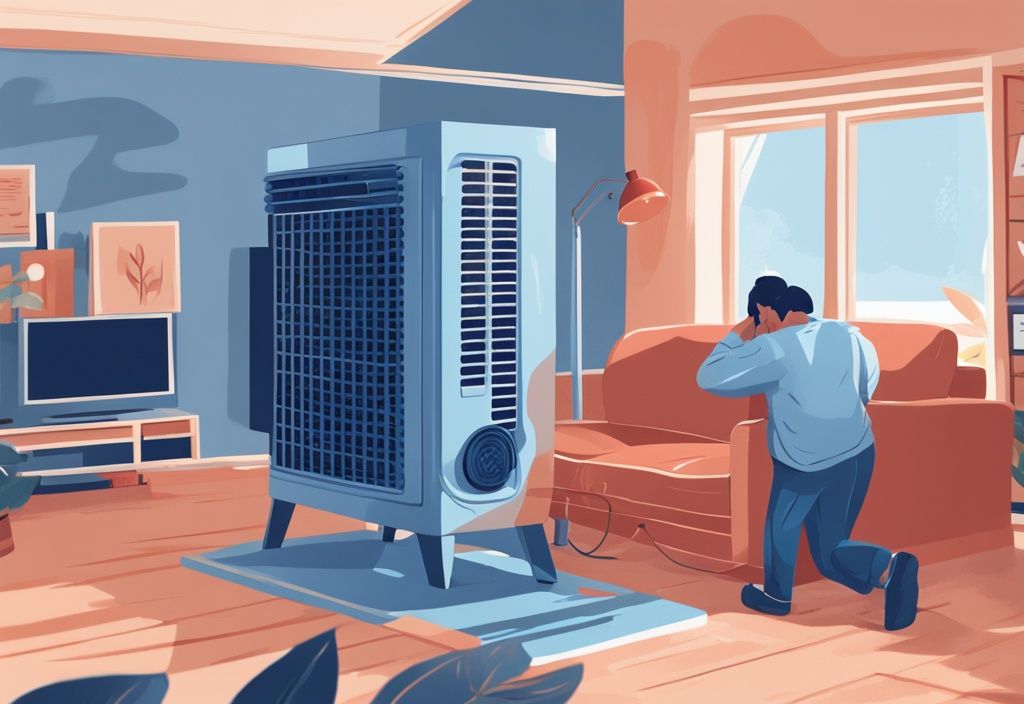
- Inspect the AC Unit: Make sure all components are secure. Check for any loose screws, bolts, or fixtures that might be contributing to the noise.
- Regular Maintenance: Keep your AC running smoothly by cleaning the outdoor condenser unit, replacing air filters regularly, and lubricating moving parts as recommended by the manufacturer.
- Check the Ductwork: Ensure the ducts are properly designed and sized to avoid high static pressure. Address any potential leaks, blockages, or design flaws.
- Variable-Speed Air Handlers: These can adjust airflow to maintain levels, but restrictive ductwork can make noise issues worse. Proper duct design can help keep things quieter.
- Static Pressure Measurements: Keeping static pressure within the acceptable range can prevent excess noise and ensure efficient AC operation.
- Professional Assistance: Don’t hesitate to call a qualified contractor for more complicated noise issues. Professional assessments and solutions can make a world of difference in operating quietly and efficiently.
Final Thoughts
Addressing the question of why is my new AC so loud inside my house requires a comprehensive approach. From inspecting your AC unit to evaluating and potentially upgrading your ductwork, every step matters.
- Consistent, professional maintenance and careful evaluation of your AC system are key to maintaining a quiet and comfortable indoor environment.
Remember, staying on top of these issues not only helps you enjoy a quieter home but also keeps your air conditioning system running efficiently for years to come.
FAQ
Why is my new AC so loud inside my house?
Loud operation noises in your new AC can be quite bothersome, can’t they? They can stem from a range of issues, such as:
- Improper installation: If your AC isn’t installed correctly, it might cause excessive vibrations and noise.
- Incorrect sizing: An AC unit that’s too large or too small for your space can lead to inefficiencies and noise.
- Faulty components: Damage or defects in parts of your AC might be contributing to the noise.
- Restrictive ductwork: Ducts that are poorly designed or installed can cause a racket, too.
Addressing these elements can significantly cut down on that pesky noise and make your home a bit more serene.
Can improper installation cause my AC to be loud?
Absolutely, improper installation is often a major culprit. If the unit isn’t secured properly, it can cause vibrations and loosening of parts. This leads to structural noise transmission through the walls and floors. And let’s be honest, who needs that headache?
How does ductwork affect AC noise levels?
Ductwork plays a make-or-break role in how quiet—or noisy—your AC runs. If the ducts are too narrow or designed poorly, they create high static pressure. This forces your air handler to work overtime, increasing the noise level. So, checking your ductwork might be a wise move.
Should I hire a professional to fix my loud AC?
It’s often a good idea to bring in a professional. An experienced technician can pinpoint the exact problem and fix it right the first time. This saves you from a lot of trial and error and ensures your AC runs quietly and efficiently. Plus, you can focus on enjoying your cool, quiet home.
What maintenance steps can I take to reduce AC noise?
Regular maintenance is key:
- Keep the condenser unit clean to avoid unnecessary noise.
- Replace air filters regularly to maintain good airflow.
- Secure any loose components.
- Ensure moving parts are properly lubricated.
Implementing these steps can go a long way towards keeping your AC unit running smoothly and quietly. It’s like giving your AC a little TLC!
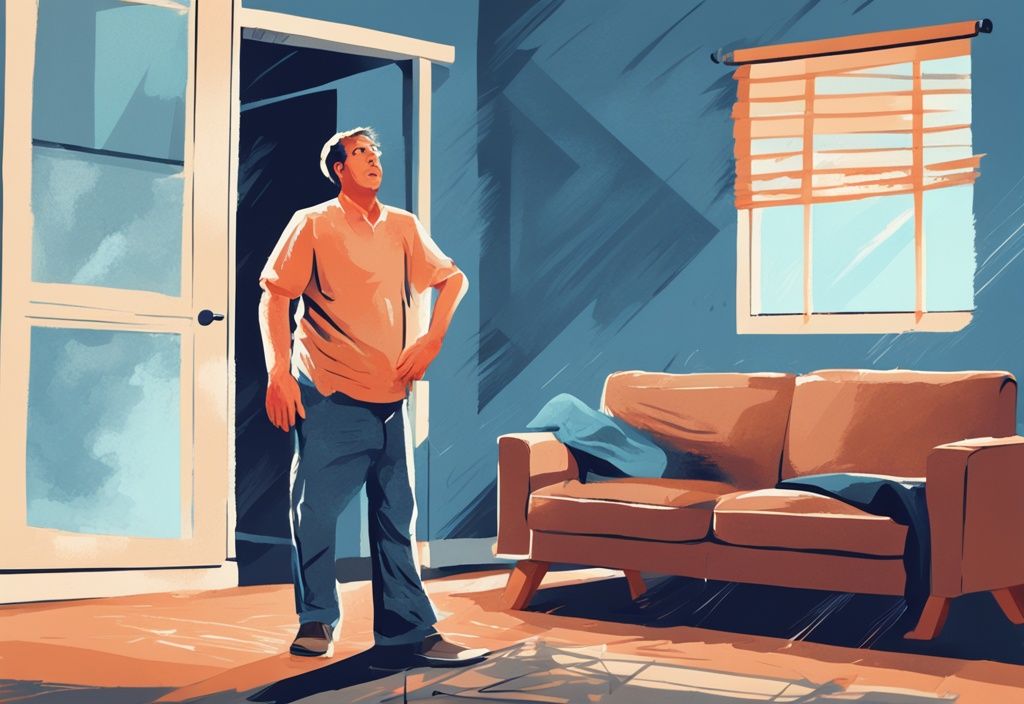

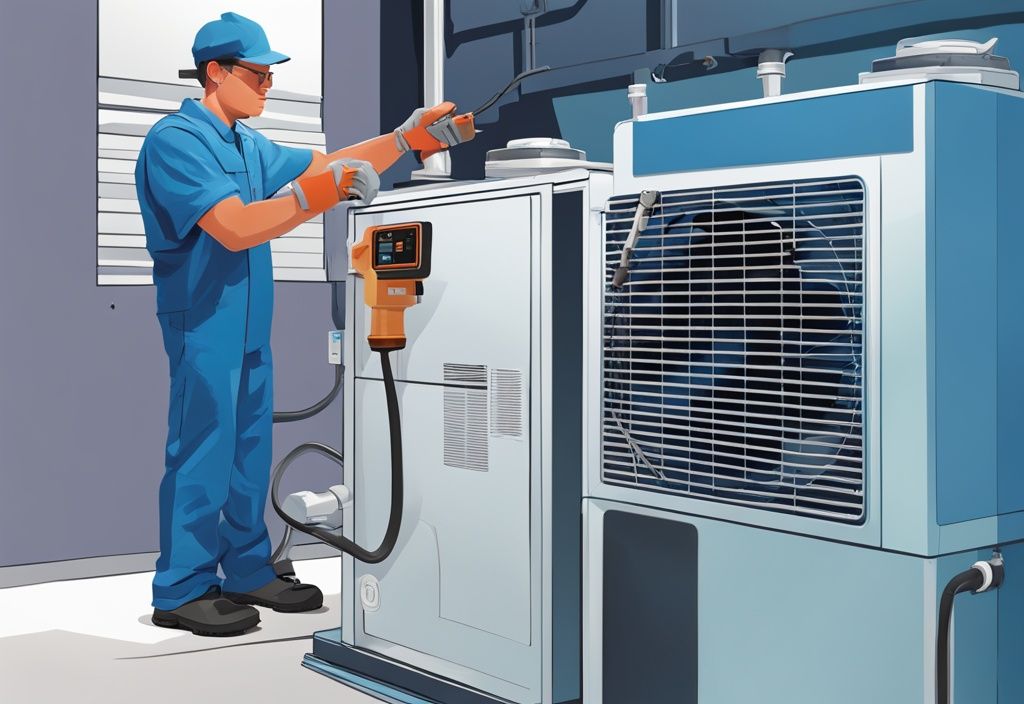

Post Comment